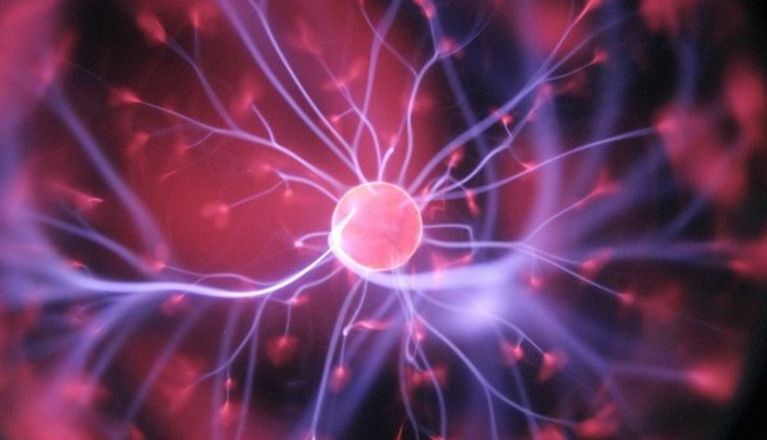-
View article
 #Economy
#EconomySouth Korea: a year after the political crisis, markets are buying the promise of stability
2025/12/17
- #Eco-trends
- 2020/03/30
- 0
-
6
Promising progress in early cancer diagnosis
Cancer is one of the deadliest diseases in France, causing nearly 150,000 deaths a year. The country’s growing and ageing population means the number of new cases is automatically increasing every year, with 400,000 French people affected by cancer in 2018. However, thanks to medical progress and increasingly targeted and effective treatments, mortality has fallen by almost 2% since 2010. Another reason for this decline in mortality is better screening to detect the disease earlier, significantly improving patients’ chances of survival. For example, colorectal cancer, which has the second-highest mortality rate, has a five-year survival rate of 90% if detected early (at stage I), falling to only 13% once it has metastasized.

Could a simple blood test be all it takes to detect many cancers early?
Thanks to advances in research, scientists have succeeded in identifying blood markers specific to certain types of cancer. These generally consist of proteins produced in unusually high volumes by cancerous cells, examples being PSA (prostate-specific antigen) in prostate cancer and the CA 125 antigen in ovarian, cervical and lung cancer. These biomarkers are identified through a blood test that can be carried out either preventively or in cases where cancer is suspected. However, this blood work is not 100% reliable, since excessive amounts of these proteins can also result in other infections that have nothing to do with cancer. The presence of these biomarkers is currently seen more as an indicator that further tests should be undertaken before a firmer diagnosis can be reached. There is as yet no miracle blood test to detect cancer early. However, thanks to an improved understanding of the mechanics of carcinogenesis, researchers have passed an important milestone, raising hopes. Professor Patrizia Paterlini-Bréchot’s French team recently made the news with an ISET diagnostic test that represents very significant progress.
The test works by isolating circulating cancer cells (CCC) that mark the beginnings of cancer invasion well before metastasis occurs. CCC are found in all types of solid cancers, and this new blood test is able to isolate and diagnostically identify them. The results of this test are extremely encouraging, with 83-100% of cases successfully detected. CancerSEEK is another blood test currently under development that seeks out mutations of 16 genes in circulating DNA in the blood and eight protein biomarkers to detect eight cancers early.
A medical imaging revolution powered by artificial intelligence (AI)?
While standard imaging techniques such as MRI scans can be useful for diagnosis, they can only reveal tumours that have already reached a certain size below which earlier-stage cancers often go unnoticed. New molecular imaging technologies (nuclear medicine) are beginning to emerge that stimulate metabolic activity in cancerous cells, enabling them to be detected at an earlier stage. One of these new diagnostic methods is the positron emission tomography (PET) scan, whereby a slightly radioactive product (an isotope) is injected into the body and attaches itself to tumours and/or metastases. The most frequently used isotope is a sort of fluorinated sugar called fluorodeoxyglucose (FDG). Due to their elevated need for glucose to fuel their rapid growth and division, cancer cells absorb this isotope more quickly than other cells. By measuring biological activity in individual cells, not only can very small primary cancers be visualised but potential metastases can also be detected.
Furthermore, new modelling approaches driven by progress in MRI physics, digital simulation, AI and high-performance computing are set to turn the medical imaging segment upside down. These far-reaching changes will make it possible to access the cellular organisation of tissue with the utmost precision, develop AI systems capable of processing huge amounts of data and reach much earlier diagnoses, including much more accurate identification of even small cancerous tumours, while ensuring little variability in interpretation. Many start-ups have moved into this segment and shown very promising results. French start-up Therapixel rose to prominence when it won the Digital Mammography Dream Challenge in 2017 with its AI system to aid detection of breast cancers. In the near future, these solutions are likely to become more widespread and establish themselves as the ideal companion for radiologists, enabling them to devote more time to complex analysis while leaving AI systems to undertake first-pass analysis of simple images.
Promising progress is beginning to come to light on solutions that will help detect cancers earlier, and thus considerably improve chances of recovery. There is, however, a long way to go before these kinds of tests become routine, especially given the risk of overdiagnosis – a major issue for the equilibrium of our health systems. In particular, early screening can diagnose slow-growing cancers that would not have resulted in the patient’s death and non-aggressive cancers that might not necessarily have worsened over time. Nevertheless, early cancer detection, combined with curative progress and personalised treatment, offers significant hope, so much so that many scientists can now imagine a not-too-distant future in which recovering from cancer will be commonplace.
Julien Gamon – julien.gamon@credit-agricole-sa.fr








